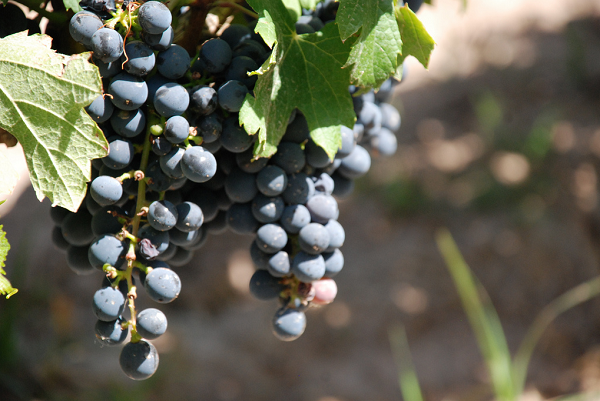Argentines are protesting a new Monsanto factory in Cordoba, Peruvians are reviving ancient farming practices and almost 5 million chickens have been slaughtered in Mexico to contain the H7N3 avian flu.
ARGENTINA
A cropdusting lawsuit in Córdoba, Argentina resumed this week. Two soybean farmers and a pilot stand accused of cropdusting too close to urban areas where adverse health effects have been found. According to Dr. Medardo Avila Vazquez, the rate of deaths from cancer in the area is twice as high as the rest of Córdoba. Argentine science journalist Gabriela Vizental has published audio interviews from Córdoba, where hundreds have been gathering to protest a new Monsanto factory.
BRAZIL
Brazil is set to open a $9.8 million algae-based biofuel plant in the northeastern state of Pernambuco. The facility will be set up on a sugar cane plantation and use carbon dioxide emitted from ethanol production to speed up photosynthesis in algae. Opening in late 2013, the biofuel plant will initially only use 5% of plantation’s CO2 emissions.

CHILE
An international study on the effects of climate change on winemaking is underway in Chile, Australia and Spain. Entitled Winery of the Future, the research will measure “everything that is happening in the plant,” said Samuel Ortega, an agricultural engineer at Chile’s Universidad de Talca. Ortega has seen Chile’s wineproducing region shift south due to rising temperatures. Chile’s optimal winegrowing regions enjoy low night-time temperatures which are key to ripening grapes.
Chilean scientists are preparing to embark on a Chilean Census of Marine Life in 2013. The initiative is a followup to 2010’s Global Census of Marine Life, where more than 10,000 species were logged in Chile, including 15 new species. Chilean marine biologists are especially eager to continue research on the seemingly endless fields of Thioploca bacteria, first discovered off Chile’s coast in 1962 covering an area of 10,000 square kilometers–the size of Jamaica. These bacteria form communal structures so large—with the help of polysaccharides—that they’re measured on the scale of centimeters, not micrometers like typical bacteria. Victor Gallardo, a scientist at the Universidad de Concepcion who discovered the bacteria, was interviewed by Chilean science journalist Fernando Mejias Baeza for a piece about the 50 year anniversary of the discovery.
COLOMBIA
Colombia’s Caño Limón-Coveñas oil pipeline was dynamited last Saturday, sending crude oil spilling into two rivers in central Colombia. The extent of the contamination has not yet been evaluated, but as of Sunday 120,000 people have been left without water. This bombing is the latest in a string of attacks against oil operations in Colombia by the FARC leftist rebel group. Though the Colombian government says FARC is at its weakest in decades, the rebels launched 84 attacks against pipelines in 2011. Last month, FARC guerillas killed five oil workers from state-owned Ecopetrol working in southern Colombia near its border with Ecuador.
GUATEMALA
Twenty-six cases of dengue hemorrhagic fever have been reported in Guatemala. President Otto Perez has declared a hospital alert and said that four have died of the fever so far. He also stated that there were 1,186 cases of dengue around the nation, with 256 confirmed. Dengue hemorrhagic fever occurs when a person catches one of four dengue viruses after being infected by another one before, according to the National Institutes of Health.
MEXICO
The first lot of vaccines for Mexico’s H7N3 avian flu outbreak will be distributed on Friday, said Mexico’s national food safety service (Senasica). Close to 4.9 million chickens have been slaughtered to contain the spread of the avian flu. Senasica also reported that 34 out of 358 farms tested are confirmed to have the virus, while 125 came back negative. The remaining farms are still under evaluation.
PERU
Farmers faced with drought in Peru’s highlands are resorting to ancient farming techniques to survive. Using small reservoirs that recharge aquifers, farmers near Puno in southern Peru are learning ancient methods of irrigation and in turn teaching them to the young: “With the help of the engineers and listening to our grandparents, I am harvesting water where before there was only dry land,” says 62-year-old Juan Francisco Idme, in Erik Struyf Palacios’ piece in Reuters’ AlertNet.
Peru has declared a sanitation emergency in the southeastern state of Madre de Dios. Covered in jungle and bordered by Bolivia and Brazil, Madre de Dios attracts informal mining operations looking to extract any flecks of gold they can. Horrid living conditions have bred a significant increase in diseases like dengue, malaria and yellow fever, says the Regional Health Directorate (Diresa).
URUGUAY
One hundred green sea turtles (Chelonia mydas) have been rescued from Uruguayan beaches, where they have washed up with cold shock and hypothermia, say conservationists from the Karumbé sea turtle center. The ocean temperature off Uruguay is at 10 degrees Celsius, says Karumbé’s Andres Estrades, 2 degrees lower than average. “We are seeing changing trends in maximum and minimum temperatures, possibly due to climate change. We had a rather warm autumn, and winter arrived very suddenly. This might have disoriented the turtles,” said Estrades, as quoted by Mercopress.
VENEZUELA
The invasive giant East African snail (Achatina fulica), which has a nine year lifespan and can reach a length of 9 inches, has been detected in 10 Venezuelan states and ministry officials say it could threaten local ecosystems and transmit human disease. The Venezuelan government has warned people to steer clear of the snail and wash their hands if they’ve come into contact with the animal.
